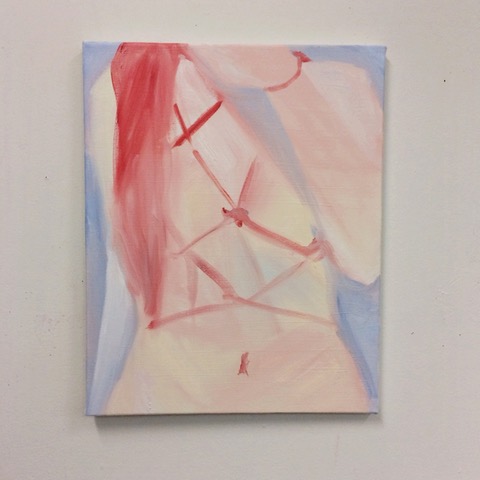

In late 2018, Louise Bourgeois: The Eternal Thread — the French-American artist’s first large-scale exhibition in China — opened at the Long Museum in Shanghai. On display among the sculptures for which Bourgeois is best known was her 2006 multimedia work 10 am is When You Come to Me. It’s composed of twenty hand-painted sheets of musical score paper, nineteen of which depict two red hands, grasping, touching, and reaching for each other. A simple, striking dossier of intimacy and connection.
Toward the end of Pop Song: Adventures in Art & Intimacy, the new memoir-in-essays by Larissa Pham, the author visits the Bourgeois retrospective and is drawn to 10 am, which she calls a portrayal of the “ever-shifting closeness and distance that was the product of two people coming into proximity.” Pham’s description of 10 am also feels apt for Pop Song, which similarly paints romantic relationships in all their ambiguity, precarity, and fluctuation.
Pop Song reads like the lovechild of Olivia Laing’s The Lonely City and Durga Chew-Bose’s Too Much and Not in the Mood, essay collections that consider art and love from the perspective of literarily inclined women. Pham’s essays are most successful when she enters a more critical mode and flexes her knowledge of visual art (she studied painting and art history at Yale), which fortify her personal reflections with intellectual heft. When she synthesizes and reflects on the work of others — Francesca Woodman, Agnes Martin, and James Turrell; Peter Hujar, Roy DeCarava, and Jenny Saville; Thiebaud, Kusama, and Caravaggio — Pham’s prose shines. Seeing art through her eyes is a gift, and each work she contemplates is enriched by her sensitivity and discernment.

Most of Pop Song’s essays have a wonderful wandering quality; Pham excels at leading the reader down sinuous paths and arriving at unexpected insights. Still, some essays are admittedly bloated. Nevertheless, breakthroughs and epiphanies abound. (I expect many millenialwomen will find Pham’s realizations — particularly about her relationships with sex, food, and Tumblr — eerie in their immediate relevance.)
The collection’s strongest essay, “Body of Work,” uses Nan Goldin’s 1980 photograph “Heart-Shaped Bruise” as a springboard to probe how bodily harm and emotional pain have shaped the lives of women throughout history. From the immortal image of Goldin’s wound, Pham’s thoughts spiral out — to crisis hotlines, to BDSM, to the Christian practice of self-mortification, to the writings of Leslie Jamieson and Julia Kristeva — and ultimately arrive at satisfying conclusions about art and suffering. (A favorite: “Art perseveres; bruises fade.”)
In combining criticism and memoir, Pham is guided by what she calls “this kind of scraping, this desperate searching for an image that communicated the way I felt.” I must have reread this phrase a dozen times: so often I hear about how the job of art is to agitate, to challenge, to jolt out of complacence and/or ignorance. This is one of its possible functions. But I tend to gravitate towards art that articulates familiar feelings. The art that moves me most is that which enables an experience of recognition, of reflection, of likeness. Reading Pop Song I had that same experience, with Pham giving language to the ineffable and assembling an arsenal of artists to help.
Pop Song: Adventures in Art & Intimacy (Catapult, 2021), by Larissa Pham, is now available for preorder on Bookshop.
0 Commentaires